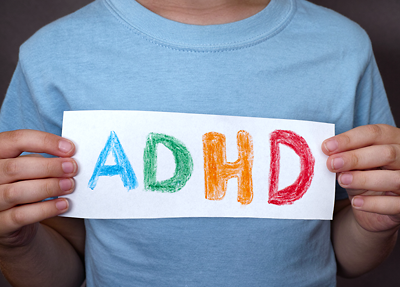Guidance on Treating Comorbid ADHD and Autism-Related Symptoms
Abstract
Up to half of all children with autism spectrum disorder manifest symptoms of attention-deficit/hyperactivity disorder, research shows.
Though autism spectrum disorder (ASD) and attention-deficit/hyperactivity disorder (ADHD) are separate diagnoses, they often co-occur. Two studies presented last week at the annual meeting of the American Academy of Child and Adolescent Psychiatry highlighted two pharmacological agents that may be used to treat the symptoms of comorbid ASD and ADHD in children.

“The co-occurrence of ADHD symptoms in children with ASD is very high,” said Lawrence Scahill, Ph.D., director of Clinical Trials Marcus Autism Center Children’s Healthcare of Atlanta at Emory University. Previous studies have shown that 30 to 50 percent of individuals with ASD manifest symptoms of ADHD, while other studies suggest that up to 66 percent of individuals with ADHD show features of ASD.
Despite this overlap, many drugs commonly used to treat ADHD symptoms have not been studied extensively in children with ASD, Scahill said.
To address this disparity, he and his colleagues analyzed the effectiveness of extended-release guanfacine, an alpha agonist, in treating hyperactivity and irritability in 62 children aged 5 to 14 who were diagnosed with ADHD and ASD.
Children received 3 mg/day of extended-release guanfacine or placebo daily for eight weeks. Parents and health care providers of the children were asked to rate the children’s behavior at the start and end of the study.
The results, which were published August 28 in AJP in Advance, showed a 43.6 percent decline in scores on the Aberrant Behavior Checklist (ABC)-hyperactivity subscale in the guanfacine group compared with a 13.2 percent decline in the placebo group. The rate of positive response (much improved or very much improved on the Clinical Global Impression-Improvement scale) was 50 percent for the guanfacine group compared with 9.4 percent for the placebo group.
The most common adverse events reported by the guanfacine group included drowsiness, fatigue, and decreased appetite.
“Based on both parent and clinician assessments of behaviors among young participants, guanfacine was superior to placebo,” Scahill told Psychiatric News. “I think that in young children with ASD who present with symptoms of ADHD, guanfacine is a reasonable drug. It will potentially improve the lives of children [with ASD and ADHD] and their families because it’s shown here to address a lot of challenges that can lead to stress within the home.”
The stimulant methylphenidate may also be able to decrease symptoms of ASD in patients with ADHD, according to research presented by Emily Simonoff, M.D., head of the Child and Adolescent Psychiatry Department at the Institute of Psychiatry at King’s College in London. Her study examined the effectiveness of treating secondary symptoms in children with ADHD and intellectual disability—disability characterized by significant limitations in both intellectual functioning and in adaptive behavior, which covers many everyday social and practical skills.
“Children with intellectual disability and ADHD typically present a range of mental difficulties such as comorbid ASD, anxiety, irritability, and aggression,” Simonoff told Psychiatric News. “It’s important for psychiatrists to properly treat the child in the context of comorbid psychiatric symptoms and search for those interventions that will be effective in treating the multitude of symptoms that are presented.”
She and colleagues conducted a randomized, double-blind, controlled study with 122 children aged 7 to 15 years with ADHD and intellectual disability.
An optimal dose-titration phase for methylphenidate and placebo was performed for at least one week prior to the study, in which children received daily doses of methylphenidate or placebo at 0.5mg/kg (low), 1 mg/kg (medium), or 1.5mg/kg (high), depending on symptom severity and adverse reactions of each individual child.
In terms of primary outcomes that were determined by the ABC-hyperactivity subscale, the researchers found methylphenidate to be more effective than placebo after 16 weeks of treatment.
The results also showed benefits in secondary outcomes, including a decrease in inattention, irritability, impulsivity, and cognitive dysfunction that are often associated with ASD, stated Simonoff.
“These findings were very important because of the folklore in the field of child psychiatry that ASD-related symptoms in children with complex neuronal development are more likely to get significantly worse when they are being treated with stimulant medication. We found the opposite,” said Simonoff.
Adverse events associated with methylphenidate treatment included fatigue, loss of appetite, and weight loss.
“We think that we got improvement in most of our secondary outcomes because of the optimal dose-titration procedure that we conducted to get the correct dose for each individual in the trial,” Simonoff explained to Psychiatric News. “If optimal dose titration—which is a relatively easy procedure to do—becomes more routine in clinical practices when prescribing medicine, the likelihood of getting a positive clinical response in patients will be increased, thereby greatly benefiting our patients.”
Simonoff’s study was supported by the National Institute for Health Research, UK, and Autism Speaks. Scahill research was supported by the National Institute of Mental Health. ■



